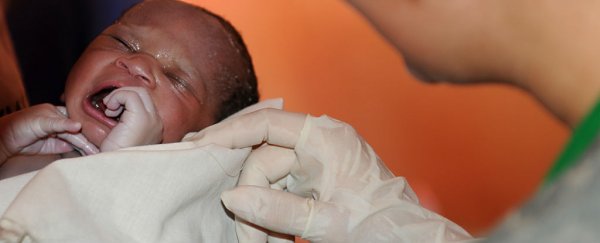A single drug has shown potential in fighting three major infections - sleeping sickness, Chagas disease, and leishmaniasis - that infect 20 million people each year in developing countries.
The drug has so far only been tested on animals, but the results have been so postivite, researchers are ready to start human trials once the current round of safety testing is complete.
"What makes [the drug] special is the fact it is targeting all three parasites. That's the first time it has been done, so it is quite special," one of the researchers, Elmarie Myburgh from the University of York in the UK, told James Gallagher from the BBC.
"To me, this is obviously a big deal, I'm in this field to try and make a difference, to get to a cure, and we're working hard in the hope that it gets to patients," she added. "There's been very little incentive to spend a lot of money on these diseases as they affect a very poor, and yet large, population."
For now, the drug is known as GNF6702.
The team investigating its effects, led by researchers from the Novartis Research Foundation in San Diego, says that it could treat all three of the infections by seeking out and destroying the similar parasites that cause them - all of which are a type of single-celled organism called kinetoplastids.
Sleeping sickness - an infection that can result in a prolonged coma - is caused by the Trypanosoma brucei parasite, and spread via tsetse flies.
Chagas disease, which can enlarge a person's heart, is caused by the Trypansosoma cruzi parasite, and spread by assassin bugs.
The third disease, leishmaniasis, is caused by the Leishmania parasite, which is spread by sand fly bites. You only need to Google this one to know how devastating it is.
All three diseases are responsible for 50,000 deaths a year in developing nations.
The team designed the drug to seek out and destroy something called the proteasome - a protein complex that recycles waste proteins and is found inside most eukaryote and archaea species, including humans.
In the past, researchers had thought it was impossible to target these proteasomes because it would be too hard to differentiate between the species. But the researchers were able to find a target that was remarkably similar across the three parasites, but distinct enough from the human version.
To find a drug that would attack this target, the team tested some 3 million compounds before finding one that would attack the parasite proteasome, while leaving the human version alone.
They then took this compound and manipulated it to make it more potent, reports Gallagher.
While a single drug for all three diseases would obviously be the best option, because it'd be cheaper and easier to distribute, the researchers are also looking into the possibilty of developing the drug into three specialised, to achieve more efficient results.
"It may be a single drug for all three diseases may not be the best strategy," one of the team, Richard Glynne from the Novartis Research Foundation, told the BBC.
"The biology of the diseases is different. For example, in sleeping sickness the parasite is in the brain, so you need a drug that gets into the brain, so there are tweaks that may be required."
The current method of treatment for these infections is to administer toxic chemicals - typically through an IV - to patients.
But since many people in the affected nations don't have access to IV facilities, many patients aren't properly treated, so finding a more effective drug - or drugs - would be a huge step forward.
The new parasite-fighting drug will have to undergo human testing before we know for sure if it really is the "new hope" people are branding it, but the researchers are cautiously excited.
"We continually face challenges getting medicines to those people and making affordable medicines is an important first step. This is quite an important piece of research, I'm excited by it, but there's still a long way to go," said Wellcome Trust researcher, Stephen Caddick, who was not involved in the research.
The team's findings have been published in Nature.
